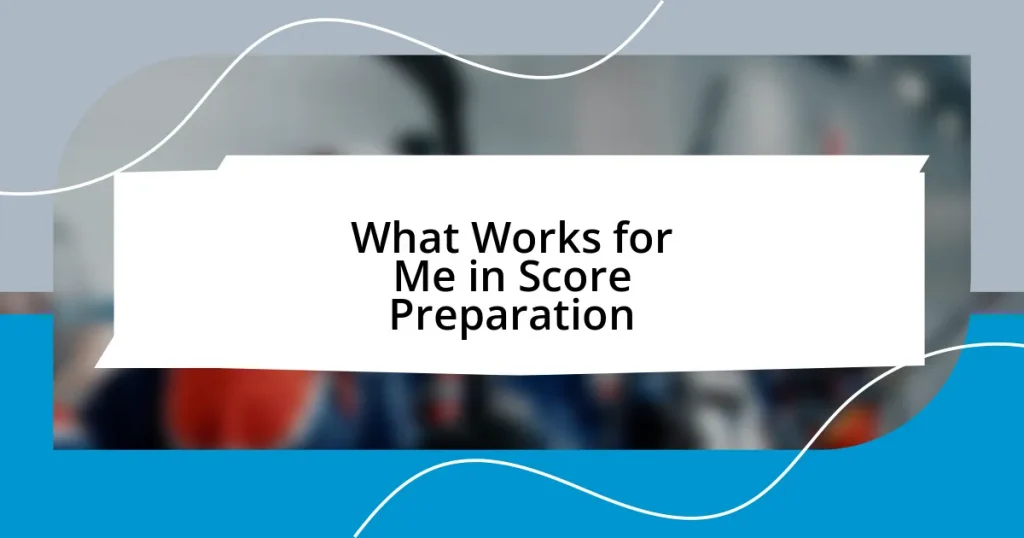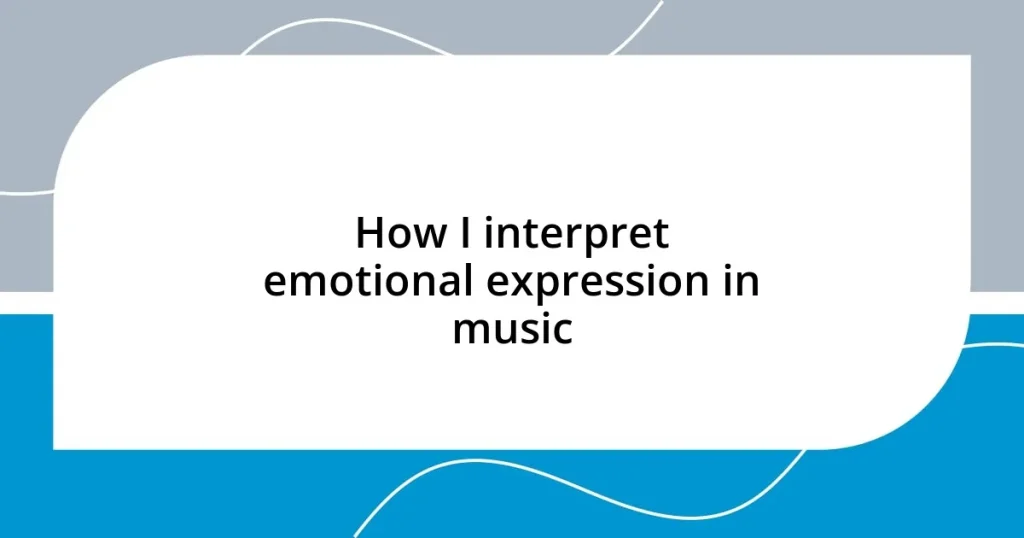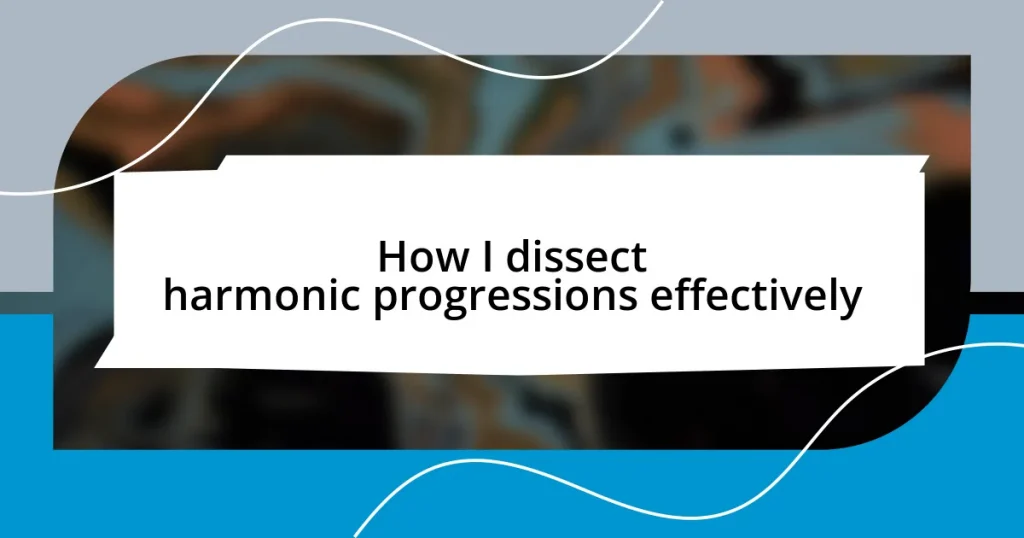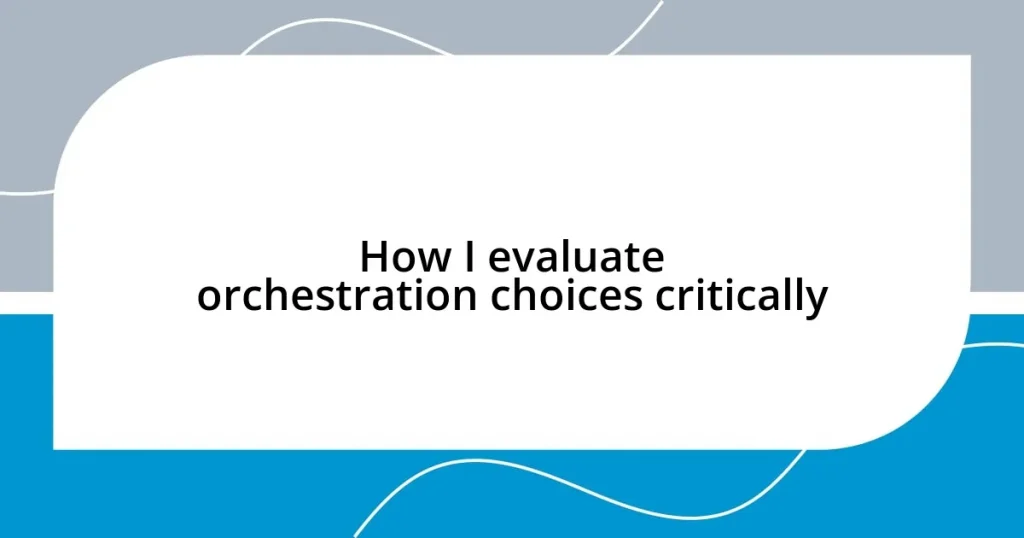Key takeaways:
- Breaking material into manageable chunks enhances retention and makes studying less daunting.
- Setting specific, measurable, and achievable goals provides direction and motivation for study sessions.
- Incorporating realistic practice tests builds resilience and time management skills while identifying weaknesses.
- Reviewing mistakes as learning opportunities helps clarify errors and inform future study strategies.
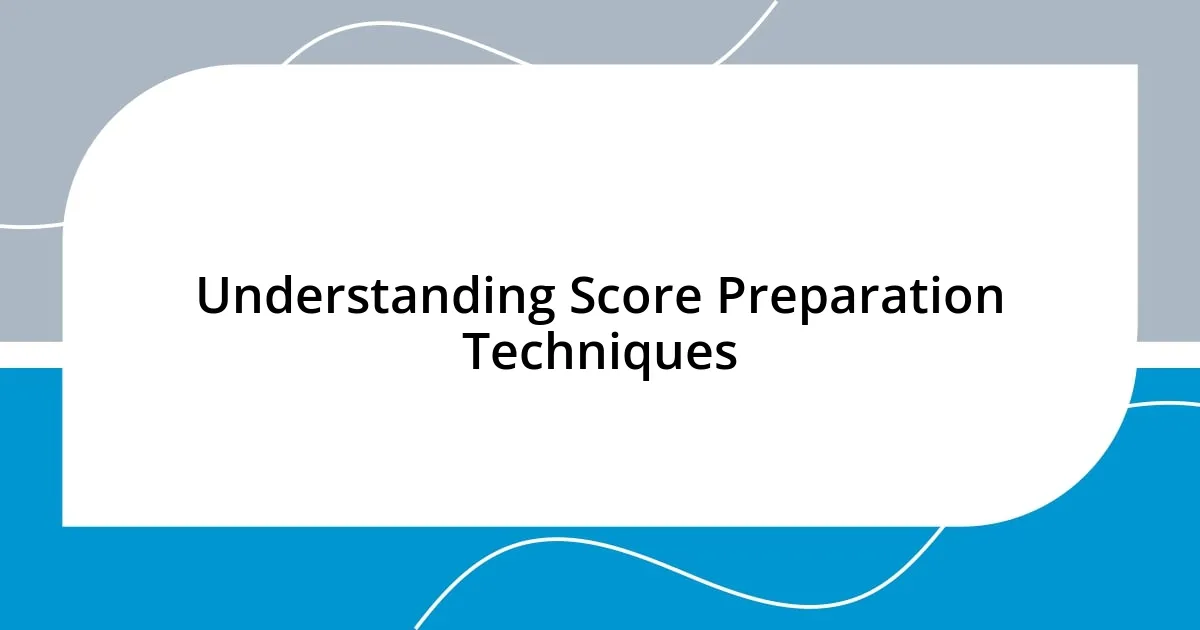
Understanding Score Preparation Techniques
When I first delved into score preparation techniques, I was overwhelmed with the sheer amount of information available. I remember trying multiple approaches, from flashcards to online practice tests, and feeling frustrated when something didn’t click. It got me thinking: what truly works for me?
One technique that has consistently helped me is breaking down the material into manageable chunks. I recall spending Sunday afternoons with a cup of coffee, reviewing only a few topics at a time. This not only made the studying process feel less daunting but also allowed me to retain the information more effectively. Have you ever felt like you were drowning in content, only to find clarity by simplifying?
Additionally, incorporating visual aids like charts and diagrams transformed my understanding of complex concepts. I can vividly remember the “aha” moment when a simple diagram made a challenging topic appear straightforward. It’s fascinating how our brains often respond better to visuals—have you explored this approach in your own studies?
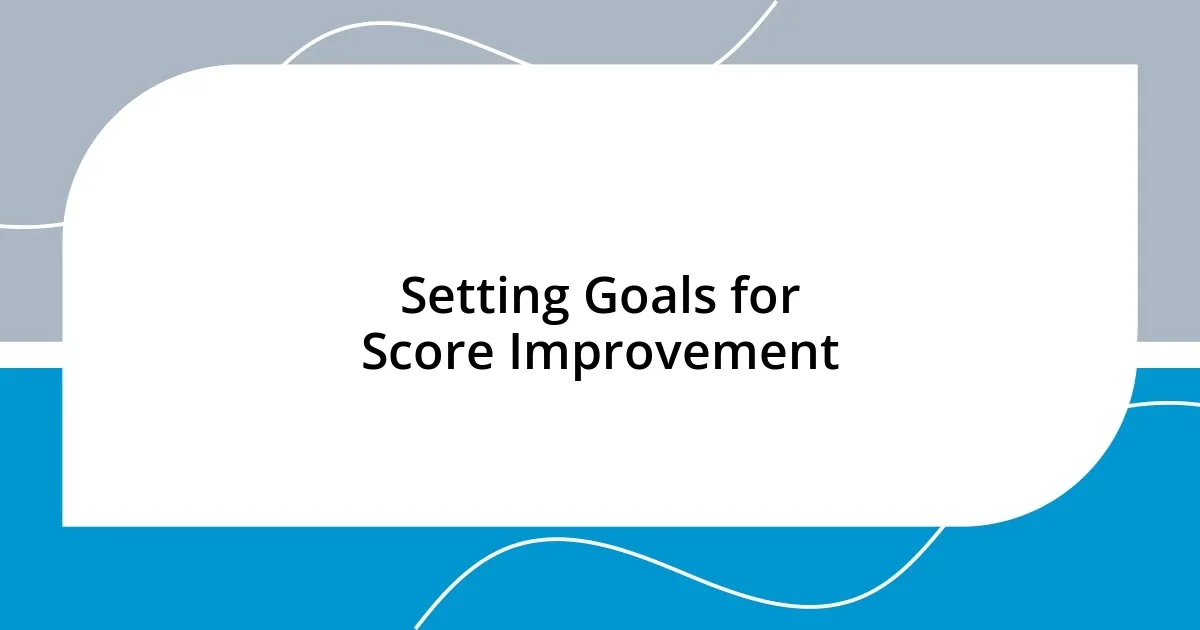
Setting Goals for Score Improvement
Setting clear and achievable goals for score improvement is essential. When I began my journey, I often found myself lost in a sea of aspirations without focused targets. I vividly remember setting a goal to increase my practice test score by 50 points in a month. That specific target provided me with a tangible milestone, giving my study sessions direction and purpose. It made a significant difference in my motivation and the effectiveness of my preparation.
Here are some strategies I found helpful for goal-setting:
- Make it Specific: Instead of saying, “I want to improve,” I set clear objectives like “I will study math for 30 minutes every day.”
- Measure Progress: I tracked my scores weekly, which helped me see patterns and areas needing attention.
- Set Short-term and Long-term Goals: Breaking my main objective into smaller, manageable goals kept me motivated.
- Stay Flexible: If a goal felt too overwhelming, I adjusted it. I remember shifting my study focus when I realized a subject required more time than I initially thought.
- Celebrate Achievements: After reaching a goal, I treated myself to something small, reinforcing positive behavior and progress.
By implementing these strategies, I transformed my approach to studying, turning it into a more purposeful and rewarding endeavor.
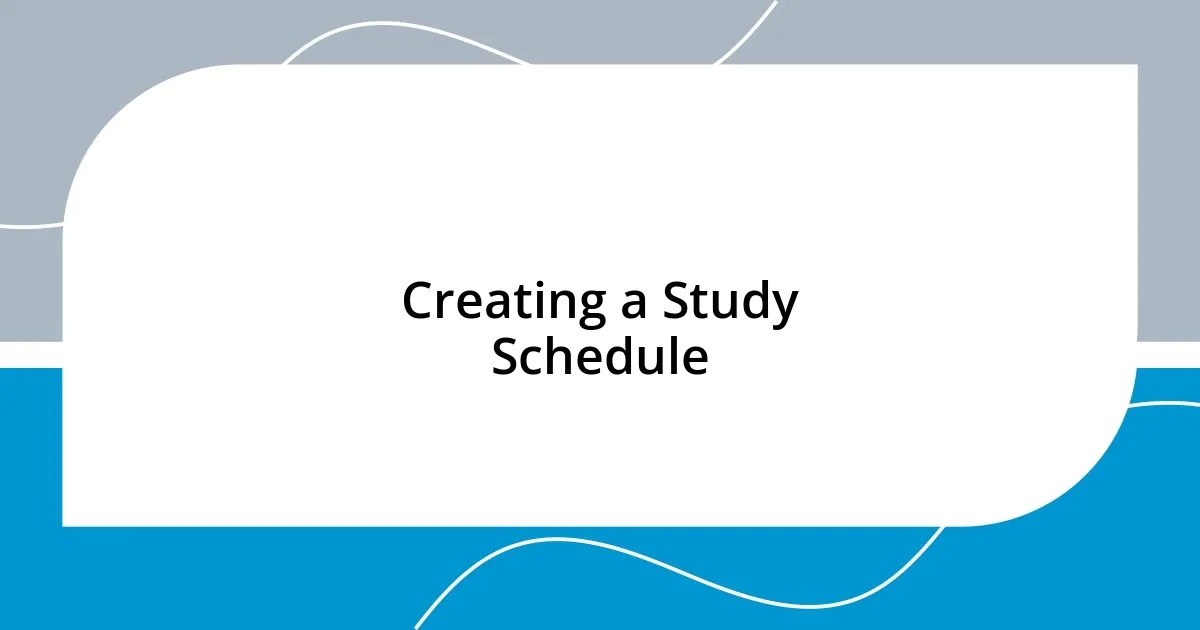
Creating a Study Schedule
Creating a study schedule that suits your personal routine can be a game-changer for score preparation. From my experience, I found that dedicating specific time slots during the week helped me stick to my study plan. For instance, Monday evenings became my go-to for reviewing verbal concepts, while I reserved Saturday mornings for math practice. This consistency not only built a routine but also made my study sessions something I looked forward to, rather than a chore.
I’ve also discovered the importance of factoring in breaks. When I initially tried cramming material for hours, I felt mentally drained, and retention was poor. I’ve since embraced the Pomodoro technique: studying for 25 minutes, followed by a 5-minute break. This simple shift allowed my brain to recharge, making study time more productive. Have you ever noticed how a short break can rejuvenate your focus?
Lastly, I recommend periodically reviewing and adjusting your schedule. Early on, I found that Wednesday evenings weren’t working for me due to fatigue from the week’s demands. So, I made the shift to studying in the morning when I typically felt more alert. Recognizing when and how to adapt my schedule was key to maintaining my momentum and motivation throughout the preparation process. You might be surprised at how a small change can enhance your overall study experience!
| Scheduling Strategies | Benefits |
|---|---|
| Dedicated Time Slots | Creates a routine and improves consistency |
| Incorporating Breaks | Enhances focus and retention |
| Regular Reviews and Adjustments | Makes the schedule more effective over time |
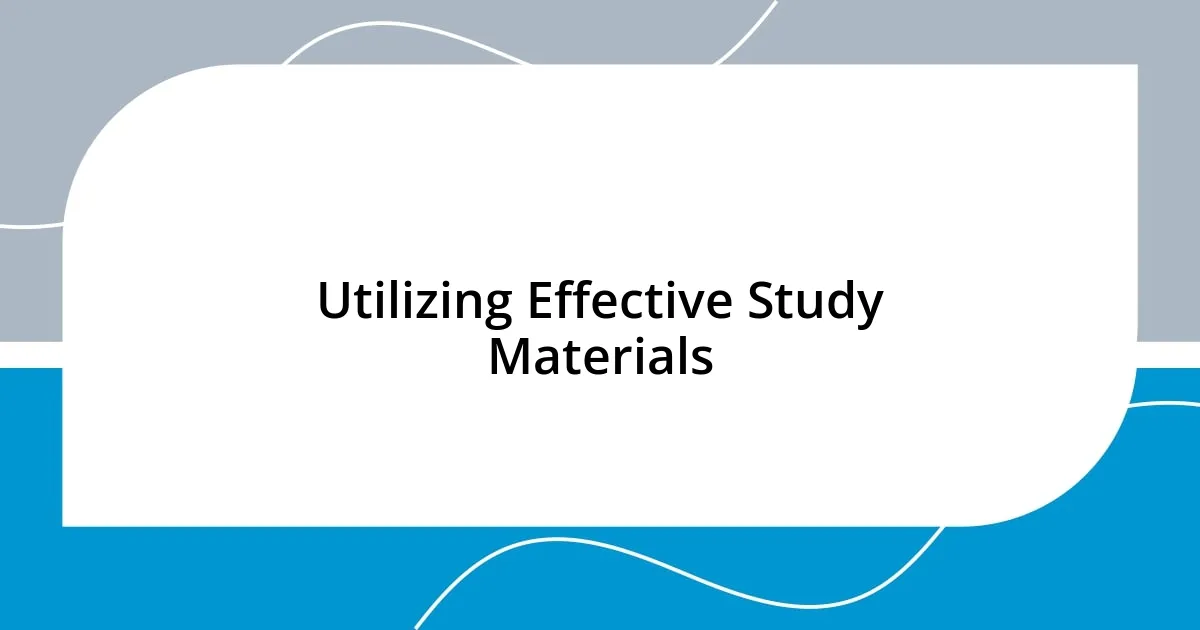
Utilizing Effective Study Materials
Utilizing effective study materials can truly streamline your preparation process. When I was choosing study resources, I learned that not all materials are created equal. I remember spending hours on thick textbooks that felt more like a chore than an aid. In contrast, I found that interactive online platforms, like quizzes and flashcards, made learning feel engaging. Have you ever experimented with a study tool that transformed your understanding? For me, it was the visual learning aspect that clicked – trendy infographics and videos broke down complex topics in a way I could easily digest.
Another critical insight I gained was the importance of using practice tests that closely mimic the real exam format. I vividly recall taking a practice test with a well-known online resource that offered timed conditions. The pressure I felt was nerve-wracking yet exhilarating; it gave me a taste of the actual experience. Afterward, reviewing the incorrect answers was an eye-opener. I learned not just what I got wrong but why, helping me target specific weaknesses. Have you assessed how well your study materials reflect the exam’s demands? This approach of aligning resources with exam conditions was crucial in building my confidence and readiness.
Lastly, I realized the value of diverse materials. I chose a mix of different types of resources: video tutorials for concepts I struggled to grasp and study guides for a quicker recap. This blend catered to my varying moods and energy levels, ensuring I stayed engaged. One day I’d be on my laptop, laughing at a humorous educational video, and the next I’d be curled up with a compact study guide. How do you keep your studies fresh and exciting? For me, this variety prevented burnout and kept my motivation high throughout my preparation journey.
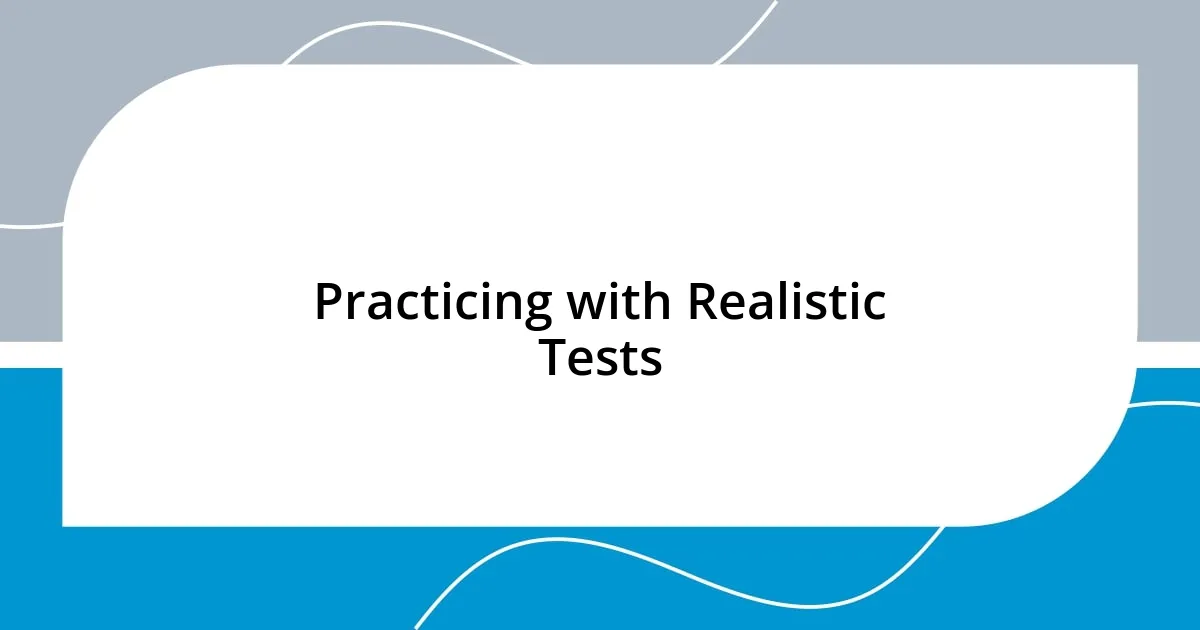
Practicing with Realistic Tests
When I decided to incorporate realistic tests into my study routine, it transformed my preparation. I remember the first time I took a full-length practice test—it felt very different from the smaller quizzes I had been doing. The ticking clock heightened my anxiety, yet it also gave me a glimpse into what test day would really feel like. Isn’t it interesting how a bit of pressure can either paralyze us or elevate our performance? For me, the latter was true; facing the simulated stress helped me build resilience and essential time management skills.
I also found reviewing my practice test results to be incredibly revealing. After each test, I didn’t just tally my scores; I dove deep into every mistake. It was like peeling back layers of an onion—each incorrect answer revealed a gap in my understanding. I recall that one time I miscalculated a simple math problem that I thought I had mastered. It frustrated me, but it was a crucial moment; I learned I needed to revisit specific strategies that I had overlooked. Have you ever felt that “aha” moment after identifying a key area for improvement? Those moments became my fuel for focused practice.
Adapting my approach based on the test outcomes became a cornerstone of my preparation. I started to ask myself what kind of questions I struggled with the most. Was it the timing? The complexity? By analyzing my weaknesses, I fine-tuned my study sessions to target those elusive concepts head-on. This self-reflective practice not only improved my scores but also boosted my confidence. It’s fascinating how identifying weaknesses can shift our mindset from frustration to determination. How do you tackle your own challenges when preparing? For me, facing these hurdles directly was the key to my eventual success.
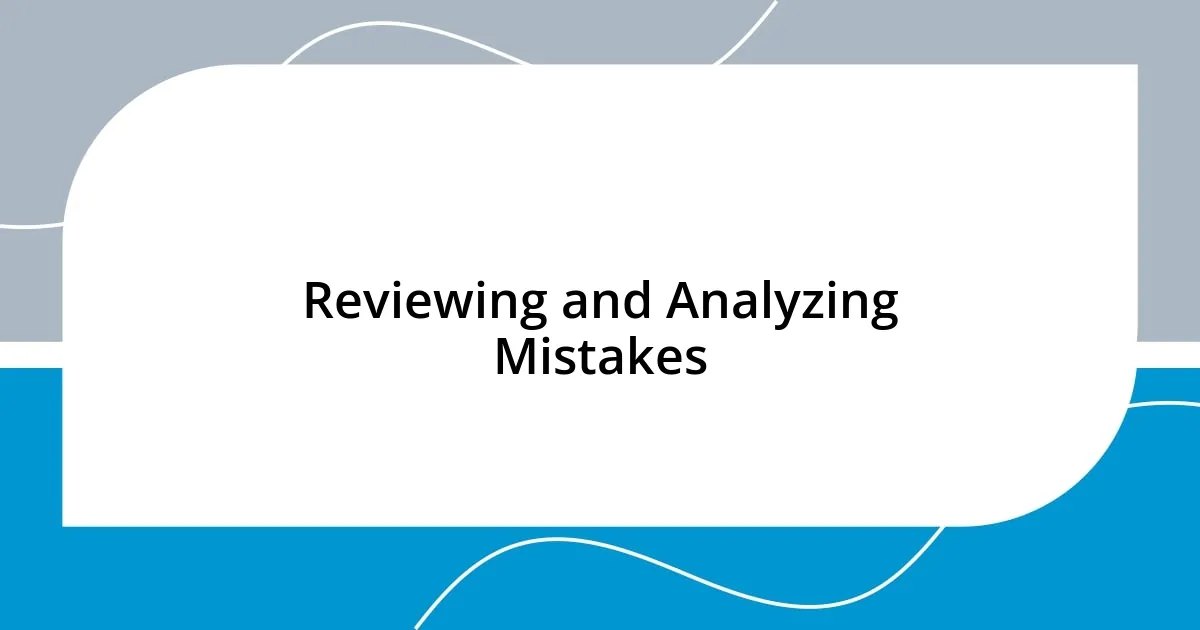
Reviewing and Analyzing Mistakes
Reflecting on my mistakes was a game-changer for my score preparation. After each practice test, I intentionally set aside time to go over my incorrect answers. I remember sitting at my desk, feeling a mix of frustration and curiosity as I flipped through the test. It wasn’t just about marking answers wrong; it was about understanding the reasoning behind my errors. Have you ever noticed that sometimes it’s the simplest mistakes that can teach us the most? For me, analyzing those missteps helped clarify not just what I got wrong but why I made those choices in the first place.
I began to see a pattern in my mistakes, especially with comprehension questions that tripped me up regularly. One week, I realized I was misreading the nuances in passages. It was a lightbulb moment for me—what if my rush to find answers was costing me the clarity I needed? So, I practiced slowing down, taking the time to absorb the context, and it made all the difference. Have you had a similar experience where slowing your pace unlocked your understanding? Identifying this tendency was a crucial step toward refining my approach.
Engaging with mistakes turned into a pivotal form of active learning for me. I created a dedicated notebook just for this purpose, where I documented my errors along with the correct reasoning. Revisiting this notebook regularly was like having a personalized coaching tool. It evoked a sense of accountability; each time I flipped through its pages, I felt motivated to overcome those challenging areas. Do you keep a record of your mistakes during study? In my journey, transforming these errors into learning opportunities paved the way for significant improvements.
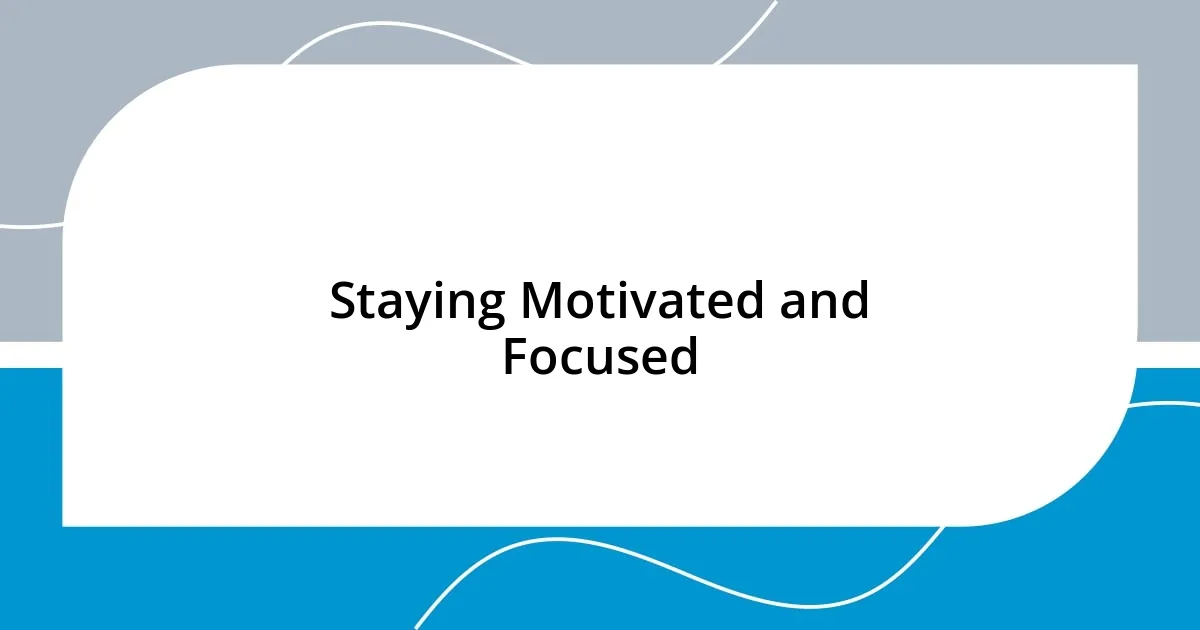
Staying Motivated and Focused
Staying motivated and focused is often a delicate balancing act during score preparation. For a while, I struggled to keep my energy up, and I discovered that setting specific, achievable goals helped immensely. Each time I ticked off a completed task from my list, it felt like a small victory. Who doesn’t appreciate those bursts of accomplishment? Each of those little wins provided a boost that kept my momentum going, encouraging me to dig deeper into my studies.
Another strategy that emerged was the power of variety in my study sessions. I sometimes felt my attention waning after long hours of the same material, which sparked the idea to mix things up. I would incorporate different formats: podcasts for conceptual understanding, flashcards for quick reviews, and online forums for community support. I still remember the day I discovered a particularly engaging YouTube channel that explained complex topics in fun ways—it was like a breath of fresh air! Have you ever stumbled upon a resource that reignited your passion for learning? That experience taught me the importance of staying flexible and adapting my approach to maintain focus.
Finally, I found that surrounding myself with motivational quotes and reminders of my ultimate goals really struck a chord. I made it a habit to write affirmations or inspirational phrases on sticky notes and place them around my study space. One of my favorite quotes was “Success is not the key to happiness. Happiness is the key to success.” This resonated deeply with me as I juggled stress and excitement. Whenever I felt distracted, a quick glance at those notes would pull me back to why I was working so hard. Isn’t it amazing how a simple phrase can reorient your mindset? Keeping that positive energy alive became a vital part of my preparation journey.











